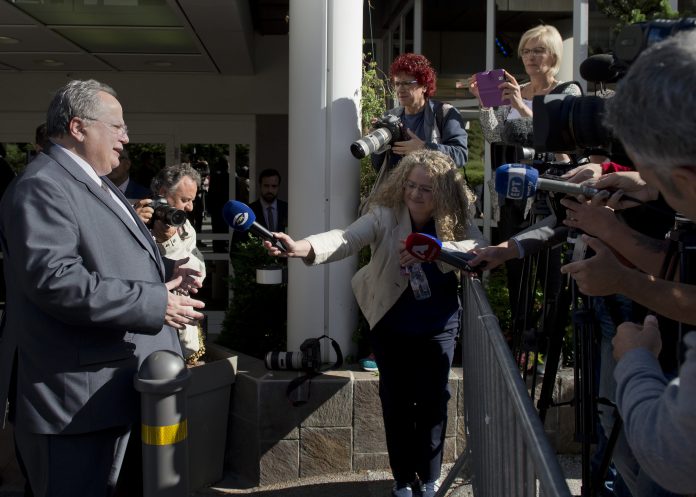Greek Foreign Minister Nikos Kotzias resigned on October 17 after reports of a clash with Defence Minister Panos Kammenos over the name change agreement made with the former Yugoslav Republic of Macedonia (FYROM).
Right-wing nationalist Kammenos has spoken out strongly against the name deal: “I won’t vote for this deal if it comes to parliament,” he said recently. Kammenos heads the coalition government’s junior party, Independent Greeks.
Meanwhile, Prime Minister Alexis Tsipras has taken Kotzias’ place, stressing his commitment to the name deal signed with FYROM in June. To end the decades’ long dispute the neighbouring country would be named North Macedonia.
“I am determined to do whatever I can (to) safeguard the successful conclusion of the historic Prespes agreement,” said Tsipras. However, the future of the deal looked uncertain following a referendum in FYROM failed to reach a minimum turnout. This means it is not yet constitutionally valid.
Meanwhile, as reported by Deutsche Welle (DW), Germany’s international broadcaster, FYROM Prime Minister Zoran Zaev faces a challenge in obtaining the necessary two-thirds majority in the Skopje parliament to amend the constitution and thus gain agreement to the deal.
On October 17, the assembly entered its third day of a debate on whether to approve the deal.
Nationalist opposition leader Hristijan Mickoski told DW that he considered the deal with Greece to be “dead” and asked the government to halt the parliamentary procedure. His VMRO party had abstained from the referendum.
Right-wing nationalist Kammenos has spoken out strongly against the deal: “I won’t vote for this deal if it comes to parliament,” he said recently. Kammenos and his party believe that Macedonia is historically Greek, and part of Greek heritage.

